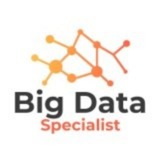View in Telegram
🗄 SQL vs. NoSQL: Choosing the Right Database 🗄
In the ever-evolving world of data, picking the right database can make or break your project. Here’s an easy-to-digest guide to help you decide between SQL and NoSQL databases:
1️⃣ SQL Databases
Structured and reliable, SQL databases are the backbone of systems that need organization and consistency.
✅ Key Features:
Data is stored in tables, with rows and columns.
Relationships between data are predefined and strictly enforced (think foreign keys).
Uses Structured Query Language (SQL) for writing and querying data.
Ensures ACID compliance (Atomicity, Consistency, Isolation, Durability), crucial for transactions.
📊 Best For:
Banking systems (e.g., tracking account balances 💳).
Inventory management (e.g., ensuring stock accuracy 🏬).
Customer Relationship Management (CRM) tools.
📖 Popular Databases:
MySQL
PostgreSQL
Microsoft SQL Server
Oracle
2️⃣ NoSQL Databases
Born from the need to handle modern, complex, and massive datasets, NoSQL databases embrace flexibility and scalability.
✅ Key Features:
Data can be unstructured, semi-structured, or schema-less (e.g., JSON, key-value pairs).
Designed for horizontal scaling—easy to add more servers as data grows.
Prioritizes speed and flexibility over strict consistency (often choosing eventual consistency).
Supports various models:
Document-based (MongoDB)
Key-value stores (Redis)
Wide-column stores (Cassandra)
Graph databases (Neo4j).
📊 Best For:
Social media platforms (e.g., storing dynamic user data 📱).
IoT and real-time applications (e.g., sensor data 🚀).
Big Data (e.g., distributed analytics).
📖 Popular Databases:
MongoDB
Cassandra
DynamoDB
Neo4j
⚔️ SQL vs. NoSQL: How to Decide?
Choose SQL when:
✅ Your data is highly structured and relationships are important.
✅ You need multi-row transactions (e.g., financial systems).
✅ Complex queries and analytics are required.
Choose NoSQL when:
✅ Your data changes frequently or lacks a fixed structure.
✅ You need to handle huge datasets across distributed systems.
✅ Speed and flexibility are more critical than strict consistency.
✨ Fun Analogy:
SQL = A traditional library 🏛: Books are categorized neatly by genre, author, and title for easy access.
NoSQL = A dynamic art studio 🎨: Ideas flow freely, and you can adapt on the go without predefined rules.
🔍 Pro Insight:
Many modern systems use both SQL and NoSQL databases to leverage the strengths of each! For example:
SQL for transactional data.
NoSQL for real-time, scalable components.
Which database fits your next project? 🤔 Let us know in the comments! 🌟
Love Center - Dating, Friends & Matches, NY, LA, Dubai, Global
Find friends or serious relationships easily
